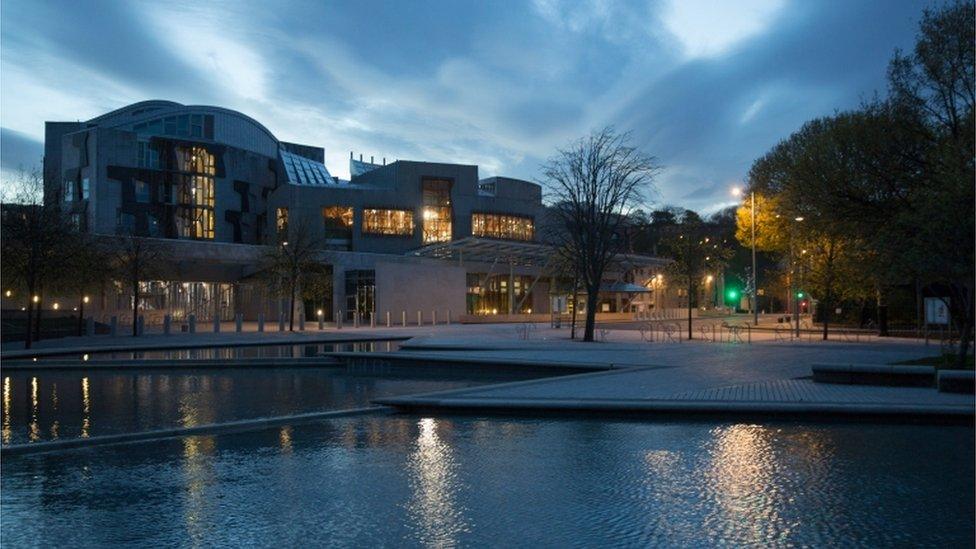Holyrood's committees examine Scots budget proposals
- Published

The 2017-18 budget sees Holyrood use new tax powers for the first time
The Scottish Parliament's committees have published their reports on the government's budget plans, with less than a week until the first vote.
The budget has divided Holyrood's political parties, with Finance Secretary Derek Mackay yet to win vital opposition support for his tax and spending proposals.
Common to all the committee reports were concerns about the constrained timetable for this year's budget, with MSPs across the board calling for more scope for scrutiny in a revised budget process.
Mr Mackay delayed publication of his draft budget until late December, after the Chancellor's Autumn Statement, and while many committees acknowledged the reasons for this there was "frustration" with the "unrealistic" timetable, which members said was "clearly not sufficient".
Elsewhere, there were several calls for clarity about funding for local authorities and about the potential impact of Brexit on budgets.
Here is a summary of what each committee has published so far.

Finance and Constitution Committee
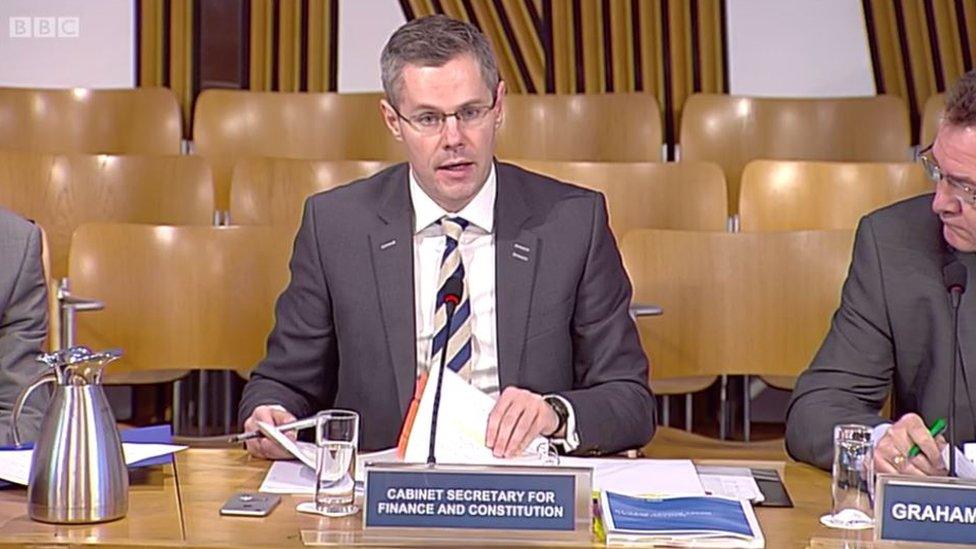
Mr Mackay gave evidence to the finance committee about his plans
As the lead committee on the budget, the finance committee's report was the longest and most detailed of those published, and they had the most time to deliberate, taking evidence from Mr Mackay on several occasions.
The group highlighted that the "historic" 2017-18 budget marks the first time Holyrood will set rates and bands of income tax, using new devolved powers.
But they warned that this adds complexity to the system, "potentially introducing a much higher level of uncertainty and volatility to the budget process", adding that added uncertainty arising from Brexit "significantly increases the challenge".
Members said this meant it was "critical that there is a sufficient level of transparency to ensure public confidence" in the operation of new financial powers.
Meanwhile, MSPs were split on the allocation for councils, noting that "due to the different presentation and sets of numbers relating to the local government settlement some members were concerned about the level of financial resource available to local government in the settlement."
Read more on the finance committee report here.

Local Government Committee
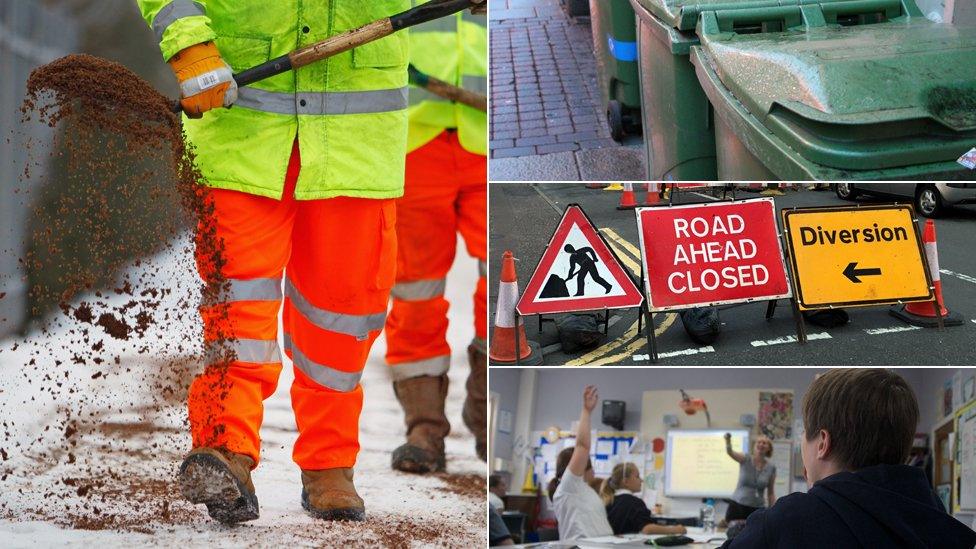
Local councils are heavily dependent on the Scottish government for cash
One of the most contentious areas of Mr Mackay's draft budget was the allocation to local authorities and local services.
As the committee noted, external, the core council budget grant fell in the budget proposals - however, the government included a range of "other sources of support", such as money going directly to schools and to health and social care partnerships, which when added together showed an overall increase in funding for services.
Members said this use of money from other budget lines made the local government allocation "very difficult to follow". They said it was "essential" that parliament was clear on "exactly how much money local authorities can be expected to receive", demanding "greater transparency" from the government.
They asked for "detailed proposals" from the government on how they could make the local government settlement more transparent in future budgets.
Elsewhere, the committee welcomed the lifting of the council tax freeze, and recommended a move towards multi-year budgets.

Economy, Jobs and Fair Work Committee

MSPs questioned whether cuts to the budget of Scottish Enterprise were "prudent"
Committee members said, external they were "concerned" about cuts to the budget of Scottish Enterprise, questioning whether this was "prudent in the interests of promoting economic growth" in the post-Brexit landscape.
They did welcome increases in support for international trade, but asked for assurances from the government that increases would not be "undercut" by reductions in funding elsewhere.
Noting the "frustrations" around the budget timetable, the committee said they "expect nothing less than clearly defined arrangements better suited to effective parliamentary scrutiny to be in place in time for the next budget".
Members also highlighted fuel poverty as an area of concern.
Their report said the government's failure to meet a target of eradicating fuel poverty by November 2016 was "entirely predictable" but "no less disappointing for that", urging ministers to "examine forthcoming policy initiatives through 'a fuel poverty lens'".

Education and Skills Committee

The education committee voiced a series of concerns about the recently introduced Curriculum for Excellence
The education committee pulled no punches in its assessment of education funding, and the recently introduced Curriculum for Excellence (CfE) in particular.
They said said it was "clear" the Scottish Qualifications Authority still needs resources to develop CfE - contrary to claims from Education Sectary John Swinney that the framework has been devolved to "a very advanced stage".
Their report, external concludes that the committee "does not believe it is accurate that the CfE has reached the stage of maturity that the Scottish government believes is the case", questioning whether the government was allocating funds based on the support needed, or "due to budget pressures".
Members said they were "very concerned that there is a lack of clear accountability in the delivery of CfE".
They also said the committee was "unclear how a cash funding reduction of 1.3% in higher education resource matches with a commitment to protect core research and teaching grants".
Elsewhere, the report highlighted the confusion over local authority funding, noting that "the value of the overall settlement to individual local authorities and whether this represents a net gain or loss is complex and dependent on a number of factors".
Like the local government committee, members asked for "full clarity" on this issue, warning that they "may return to this matter" in future depending on the final outcome for councils.
And members noted "concern" at reports the Scottish Funding Council will have to return a £50m underspend to the Scottish government, asking for "a much more detailed explanation of the circumstances".

Environment, Climate Change and Land Reform Committee

The committee questioned what the loss of EU funding could mean for Scotland's landscapes and wildlife
While making "no specific recommendation" about the budget, the environment committee, external raised concerns about the potential loss of EU funding for groups like Scottish Natural Heritage (SNH) and the Scottish Environment Protection Agency (Sepa), which have seen budgets cut in recent years.
They said there was "considerable uncertainty" about the loss of funding, with "no doubt as the to the potential impact of both a reduced budget and the removal of EU funding might mean to Scotland's landscapes, habitats and wildlife".
The committee asked the environment secretary to provide further details on the implications of losing EU funding.
Members also said they were "concerned with the reduction of overall funding" for climate change research, asking the government what it would do to address any negative impact of this cut.

Equalities and Human Rights Committee
The Equalities and Human Rights Committee also raised concerns, external about Brexit, saying it was "expected to place additional pressures on third sector and voluntary organisations".
While the equalities budget has been maintained in real terms, the committee pointed out that this meant a real-terms cut after inflation, saying that this combined with the loss of EU funds "could see the Scottish government's equalities policies being undermined and progress rolling back".
Members called on the government to push for talks between the third sector and voluntary organisations, the UK government and EU authorities on how funding gaps could be addressed.

Justice Committee
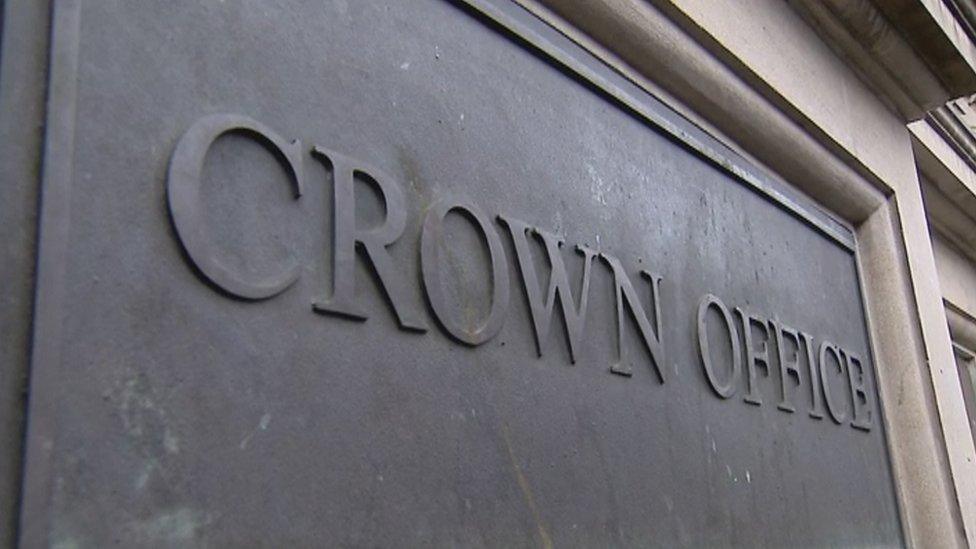
The justice committee said any job losses at the Crown Office would be a concern
The Justice Committee voiced, external "concern" about the unchanged cash settlement for the Crown Office, which equates to a real-terms cut.
Members said this might mean the prosecution service "will have to absorb inflation increases and other costs", and asked the government for assurance that extra funds would be available should the Lord Advocate deem it necessary to ask for it.
They said "any reduction in staff numbers" at the Crown Office would be a concern.
The committee is currently conducting an inquiry into the role and responsibilities of the prosecution service, and noted that the new leadership within the service "provides an ideal opportunity to take a fresh look at the priorities, resources and demands" upon it.

Rural Economy and Connectivity Committee
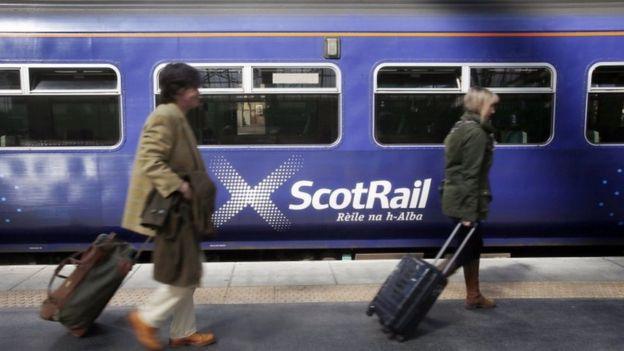
The government plans to give season ticket holders a week's worth of free travel in 2017
The rural economy committee made some of the strongest comments about the budget timetable, saying, external it was "unrealistic" and "severely undermined the ability of the committee to conduct scrutiny of sufficient depth and quality".
Members welcomed increased tree planting levels, targets for superfast broadband rollout across the country by 2021, and a rail fares discount scheme.
However they said they were "concerned" about the amount of loan funding going to Prestwick Airport and said the government should take "all possible action" to make sure past issues with common agricultural policy farm payments were not repeated.

Culture, Tourism, Europe and External Relations Committee
The committee highlighted, external real-terms cuts to the budgets of VisitScotland and Creative Scotland, commending the groups for their ability to manage their finances in light of these cuts.
Members encouraged the government to "consider" the point at which funding freezes would "result in a reduction in the projects, support and services that can be delivered" by the bodies.
MSPs did welcome the increases in international aid and humanitarian aid budgets, and the government's approach to trade hubs in light of "the need for Scotland to promote itself internationally following the EU referendum".
They also called for multi-year budgets, recommending a three-year cycle in relation to cultural bodies in particular to allow them to plan ahead.
- Published27 January 2017

- Published25 January 2017
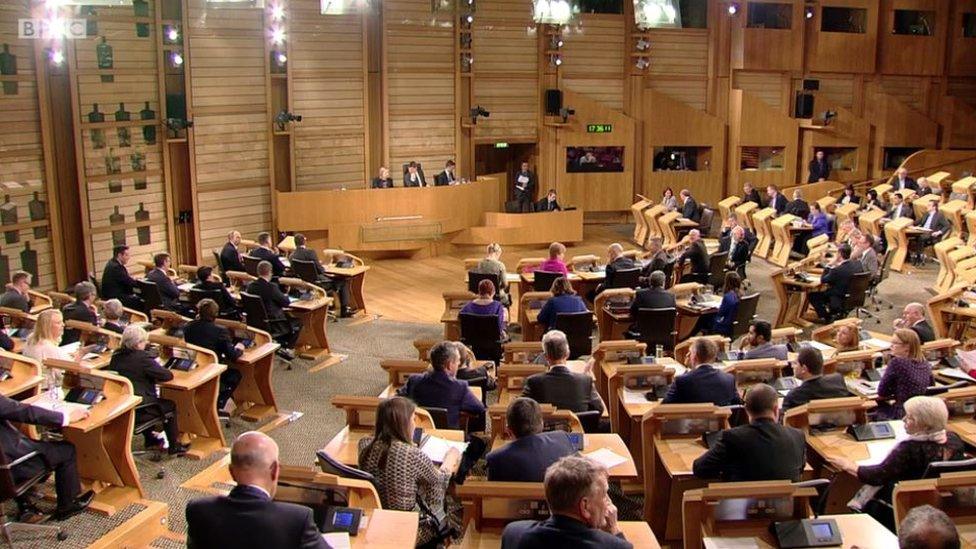
- Published23 December 2016
